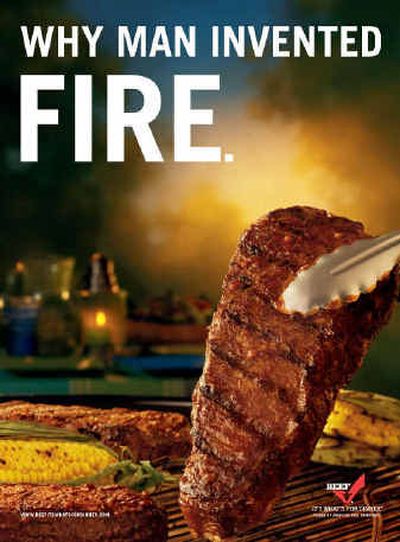Court hears challenge to cattle ad campaign

WASHINGTON — A food fight broke out at the Supreme Court on Wednesday, with justices considering whether the government can force farmers to pay for ad campaigns with catchy phrases like “Beef: It’s what’s for dinner” and billboards featuring milk mustaches on celebrities.
Farmers are challenging the multimillion-dollar beef promotion program, saying they shouldn’t have to pay for ads they disagree with.
The eventual ruling could jeopardize more than 100 federal and state campaigns for other products — eggs, mangoes, popcorn and even alligators.
The programs are billed as a way to help farmers of all sizes with generic ads, but they have fared poorly in courts. Lower courts have already struck down the “Got Milk?” dairy promotion, advertisements calling pork “the other white meat,” and the beef program.
Attorney Gregory Garre, representing cattlemen who support the beef campaign, told justices the whole industry has benefited from increased exports to other countries and consumer education.
“The part that’s good can’t save the whole thing,” Justice Antonin Scalia said.
And Justice Anthony M. Kennedy said, “There is something offensive” about forcing farmers to pay for ads they do not support.
Still, the court seemed divided on how to settle the case.
“Every time we pay general taxes we’re supporting government speech we may not agree with,” Scalia said.
Some justices also seemed concerned that a ruling against the government would hurt efforts to force cigarette makers to pay for ads warning about the dangers of smoking.
“The ultimate beneficiary of the advertising is the consumer,” Bush administration lawyer Edwin Kneedler said, defending the beef campaign.
He said the government believes beef should be part of Americans’ diets, and formed the program to help small farmers who could not mount a national campaign on their own.
Justice Ruth Bader Ginsburg and several other court members appeared skeptical of claims the beef program was government speech, giving the cattle farmers no right to challenge it. She said government public health experts would not encourage people to eat lots of red meat.
Beef producers are required to pay a $1 per-head fee on cattle sold in the United States, which generates more than $80 million a year for ads.